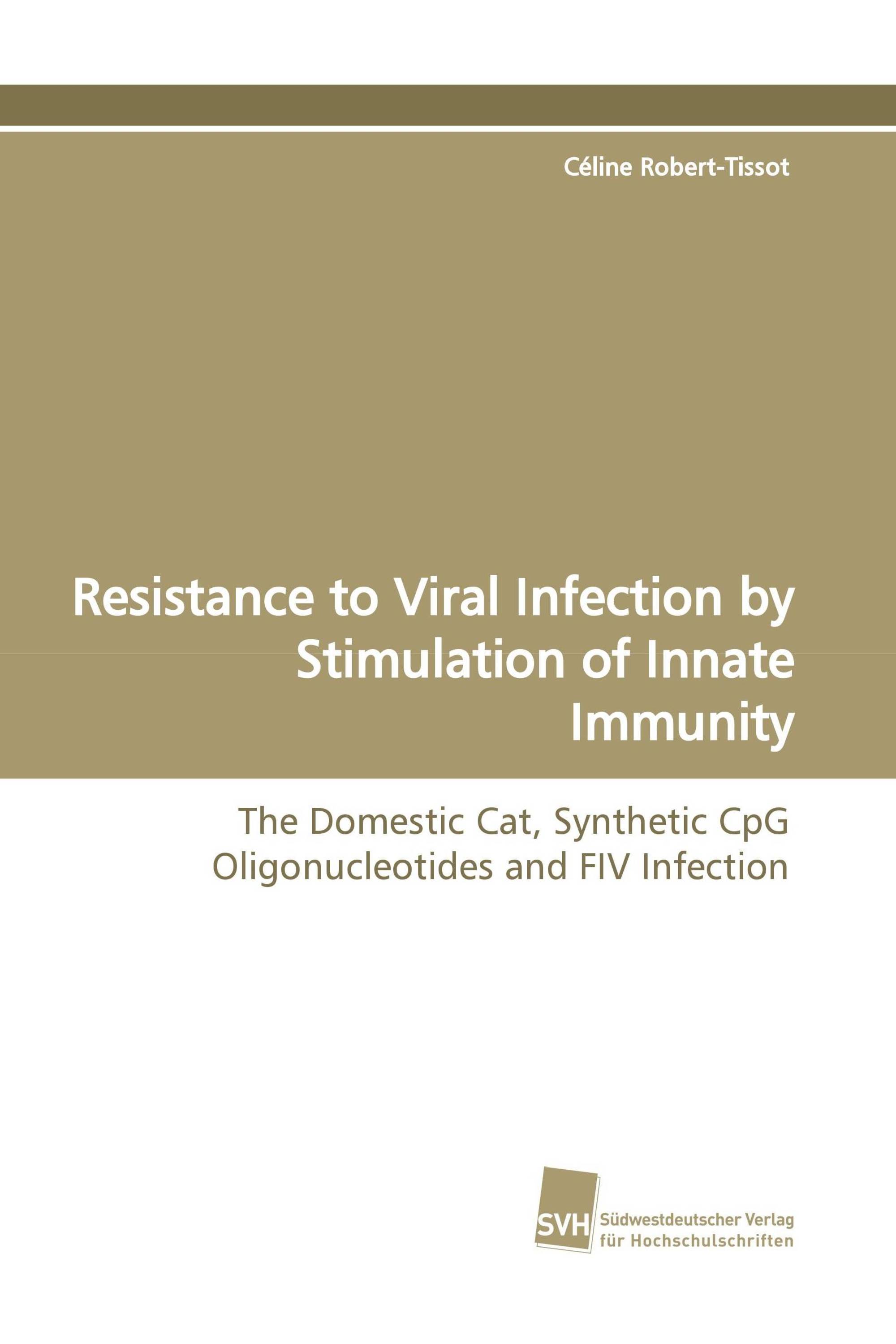Resistance to Viral Infection by Stimulation of Innate Immunity
The Domestic Cat, Synthetic CpG Oligonucleotides and FIV Infection
Suedwestdeutscher Verlag fuer Hochschulschriften ( 09.06.2009 )
€ 89,90
Viral diseases represent a considerable threat to humans and animals worldwide. Although vaccination confers protection to a large variety of infectious agents, the currently most dangerous pathogens are those “emerging” viruses, such as HIV, SARS and avian flu. The devastating potential of such serious diseases pressures the development of novel strategies to help reduce the risk of a pandemic. Recent insights into innate immunity have shed light upon its crucial role in host protection against infectious agents in both generating an immediate response against invading pathogens and promoting effective adaptive immune mechanisms. Targeting the innate immune system with highly selective molecules represents therefore a powerful means to enhance host antiviral resistance. For studies in this field, the domestic cat appears to be an ideal model, as it is an out-bred species naturally affected by a wide range of viruses that resemble in their biological properties those affecting humans. In this respect, the author discusses the possibility of enhancing resistance to FIV by modulating the feline innate immune system, as well as its implications for future medical research.
Buch Details: |
|
|
ISBN-13: |
978-3-8381-0655-7 |
|
ISBN-10: |
3838106555 |
|
EAN: |
9783838106557 |
|
Buchsprache: |
Deutsch |
|
von (Autor): |
Céline Robert-Tissot |
|
Seitenanzahl: |
236 |
|
Veröffentlicht am: |
09.06.2009 |
|
Kategorie: |
Veterinärmedizin |

